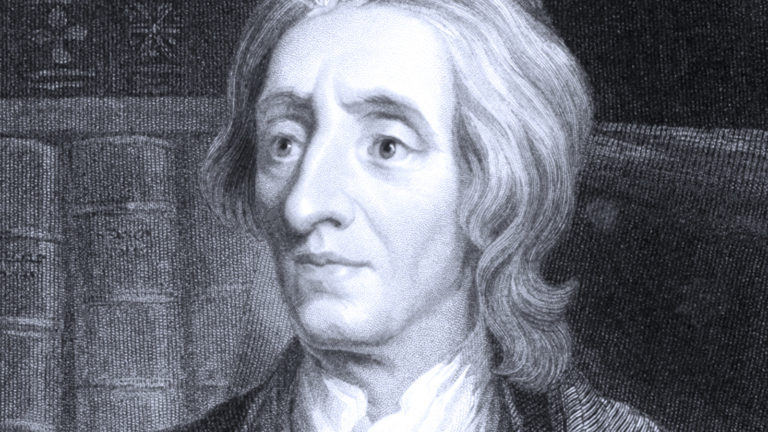John Locke strongly influenced Thomas Jefferson in composing this crucial document in the fight for freedom. By exploring part of the path that Jefferson took in forming his thoughts, students will have an authentic history lesson that brings the journey of America’s independence to life.
Sparks Commentary: Actually, John Locke DID influence the U. S. Declaration of Independence
Locke’s definition of political power has an immediate moral dimension. It is a “right” of making laws and enforcing them for “the public good.”. Power for Locke never simply means “capacity” but always “morally sanctioned capacity.”. Morality pervades the whole arrangement of society, and it is this fact, tautologically, that

Source Image: csac.history.wisc.edu
Download Image
Locke was one of the most significant influences on the Americans who wanted to become independent from Great Britain. In his Second Treatise on Government, Locke tells us that there is a “law

Source Image: americanheritage.org
Download Image
Hobbes vs. Lock’s Political Theories | Differences & Influences – Video & Lesson Transcript | Study.com
John Locke (1632-1704) is among the most influential political philosophers of the modern period. In the Two Treatises of Government, he defended the claim that men are by nature free and equal against claims that God had made all people naturally subject to a monarch.He argued that people have rights, such as the right to life, liberty, and property, that have a foundation independent of

Source Image: deepthinkers.net
Download Image
How Did John Locke Influence The Declaration Of Independence
John Locke (1632-1704) is among the most influential political philosophers of the modern period. In the Two Treatises of Government, he defended the claim that men are by nature free and equal against claims that God had made all people naturally subject to a monarch.He argued that people have rights, such as the right to life, liberty, and property, that have a foundation independent of
Locke: More enlightened than we thought. English political philosopher John Locke died nearly a century before the American Revolution, and in his time parliamentary democracy was in its infancy. But his Enlightenment ideas — including the right to life, liberty, and property — went on to inspire American revolutionaries.
Why Is John Locke An Important Name To Know? A Brief Overview – DeepThinkers
In this episode, we explore the relationship between John Locke’s philosophical arguments and the American Revolution, specifically how Locke influenced the ideas of the Declaration of Independence. Explore More Videos and Podcasts Transcript Portrait of John Locke Recent Videos and Podcasts Explore Media Livestream
Laws of Nature and of Nature’s God: Preserving the Purpose of the Declaration of Independence Through the United States Constitution – Constituting America

Source Image: constitutingamerica.org
Download Image
Katy Anderson John Locke Presentation | PPT
In this episode, we explore the relationship between John Locke’s philosophical arguments and the American Revolution, specifically how Locke influenced the ideas of the Declaration of Independence. Explore More Videos and Podcasts Transcript Portrait of John Locke Recent Videos and Podcasts Explore Media Livestream

Source Image: slideshare.net
Download Image
Sparks Commentary: Actually, John Locke DID influence the U. S. Declaration of Independence
Locke was one of the most significant influences on the Americans who wanted to become independent from Great Britain. In his Second Treatise on Government, Locke tells us that there is a “law

Source Image: sparkscommentary.blogspot.com
Download Image
Hobbes vs. Lock’s Political Theories | Differences & Influences – Video & Lesson Transcript | Study.com
John Locke strongly influenced Thomas Jefferson in composing this crucial document in the fight for freedom. By exploring part of the path that Jefferson took in forming his thoughts, students will have an authentic history lesson that brings the journey of America’s independence to life.

Source Image: study.com
Download Image
The Declaration of Independence and Philosophy of John Locke
Dec 27, 2023John Locke (born August 29, 1632, Wrington, Somerset, England—died October 28, 1704, High Laver, Essex) English philosopher whose works lie at the foundation of modern philosophical empiricism and political liberalism, classical liberalism in particular. He was an inspirer of both the European Enlightenment and the Constitution of the United States.His philosophical thinking was close to

Source Image: freethepeople.org
Download Image
From Breaking Up to Building a Nation – Colonial Connections in Williamsburg VA
John Locke (1632-1704) is among the most influential political philosophers of the modern period. In the Two Treatises of Government, he defended the claim that men are by nature free and equal against claims that God had made all people naturally subject to a monarch.He argued that people have rights, such as the right to life, liberty, and property, that have a foundation independent of

Source Image: colonialconnections.com
Download Image
Sparks Commentary: Actually, John Locke DID influence the U. S. Declaration of Independence
Locke: More enlightened than we thought. English political philosopher John Locke died nearly a century before the American Revolution, and in his time parliamentary democracy was in its infancy. But his Enlightenment ideas — including the right to life, liberty, and property — went on to inspire American revolutionaries.

Source Image: sparkscommentary.blogspot.com
Download Image
Katy Anderson John Locke Presentation | PPT
Sparks Commentary: Actually, John Locke DID influence the U. S. Declaration of Independence
Locke’s definition of political power has an immediate moral dimension. It is a “right” of making laws and enforcing them for “the public good.”. Power for Locke never simply means “capacity” but always “morally sanctioned capacity.”. Morality pervades the whole arrangement of society, and it is this fact, tautologically, that
Hobbes vs. Lock’s Political Theories | Differences & Influences – Video & Lesson Transcript | Study.com From Breaking Up to Building a Nation – Colonial Connections in Williamsburg VA
Dec 27, 2023John Locke (born August 29, 1632, Wrington, Somerset, England—died October 28, 1704, High Laver, Essex) English philosopher whose works lie at the foundation of modern philosophical empiricism and political liberalism, classical liberalism in particular. He was an inspirer of both the European Enlightenment and the Constitution of the United States.His philosophical thinking was close to